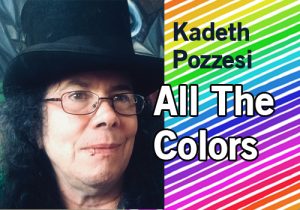‘Ethical’ trauma is hurting LGBTQA+ community
 CONTRA COSTA COUNTY, CA (April 24, 2023) — It’s been a few years since I cleaned up broken glass from my front yard and found fires set in outrage that my household is LGBTQIA+. The hateful people moved away, and we are … safer.
CONTRA COSTA COUNTY, CA (April 24, 2023) — It’s been a few years since I cleaned up broken glass from my front yard and found fires set in outrage that my household is LGBTQIA+. The hateful people moved away, and we are … safer.
We speak freely of trauma these days – the traumas caused by physical and emotional abuse, by systemic injustices. We process, we recognize, we attempt to heal. Yet “ethical trauma” and its impact on LGBTQIA+ people are not often examined.
Ethical trauma occurs when your internal sense of right and wrong, your human sense of morality, is battered to the point that your sense of self and safety is deeply wounded.
The LGBTQIA+ community is currently inundated by targeted hostility. Our trans kids in many states are denied care. We hear about “Don’t say gay” legislation. We know our history is being edited out of schools.
We know people have the ability to be better, yet by choice they are seeking to harm us as individuals and as a community in the name of personal “rights.” The “right” to hate, the “right” to impose their beliefs on the bodies of others. Their “right” is in conflict with our deeply held sense of human morality – that it is wrong to seek to harm others and right to seek to get along and respect and honor one another’s personhood. To communicate and to connect. To be human together.
This onslaught is targeted directly at the LGBTQIA+ community. Ethical injury becomes trauma, which feeds fear, shame, isolation, despair and the sense that one can never be simply “OK” as an LGBTQIA+ person. That you or your family members are at risk of this targeting simply by living your lives and being yourselves.
I watch my clients, especially young ones, get hurt deeply by the idea that they are objects of random and reasonless hatred. That legislation steals their human rights and angry factions protest their very existence. How do they grow up safe? They keep asking me: “How do I survive?”
How do we support the universality of humanity?
When people or systems have a population they don’t like or don’t trust, we must ask ourselves: Does keeping distance facilitate comfort and happiness, or would connectivity and finding commonalities be more effective?
I have recognized in myself the ability to connect across great divides, to find common ground with those who are uncommon to me. This is what I tell my young ones, those living in fear. We build bridges when we can. In the face of it all, we connect.
May you connect.
Kadeth Pozzesi, LMFT, is a clinician at the Rainbow Community Center. Kadeth is an artist, a musician and a warrior poet living in the body of an elder trans person. Send comments and questions to kadeth@rainbowcc.org.
Rainbow Community Center is grateful for the ongoing partnership with the Concord Clayton Pioneer and our monthly column. Since August 2020 when we started this partnership, we have had the opportunity to elevate the voices of LGBTQIA+ community members, RCC staff and board members throughout Contra Costa County every month. The LGBTQIA+ community is diverse, and partnerships such as ours with the Pioneer make it possible to bring these vital stories to the fore.”
